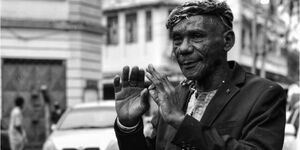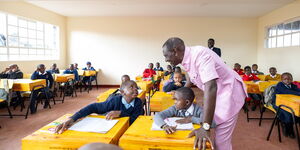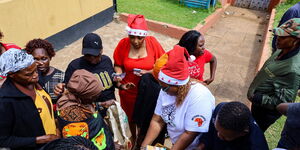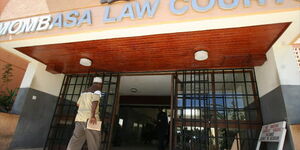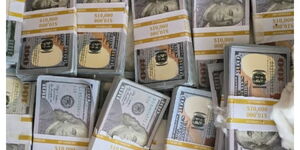The Secondary Materials and Recycled Textiles Association (SMART) and the European Recycling Industries’ Confederation (EuRIC), on Thursday, July 30, urged the Kenya national government to lift the ban on the importation of second hand clothes.
In an email seen by Kenyans.co.ke, the European traders urged the Kenyan Trade and Health officials to quickly finalize guidelines for the safe handling of secondhand clothing (Mitumba) imports.
“EuRIC entirely understands that governments take measures to legitimately protect workers who deal with the further processing of secondhand textiles. However, based on robust scientific findings, it is very unlikely that those workers can spread or get infected by handling these textiles due to the low environmental stability of COVID-19 on the textile surface combined with the average shipping time," the statement reads in part.
On April 1, mitumba traders were notified by the Kenya Bureau of Standards (KEBS) that Kenya's importation of used garments and shoes had been suspended until further notice.
EuRIC further highlighted that mitumba imports to Kenya have been on hold for the past four months, putting the thousands of workers who depend on the trade as a source of livelihood at risk.
On July 6, President Uhuru Kenyatta outlined his plans for the phased reopening of Kenya from its partial Covid-19 lockdown.
In his statement, he instructed Mitumba traders to resume following the development of guidelines by the ministries of trade and health.
However, despite the local Mitumba Association having provided draft protocols to the committee tasked with reviewing the safety protocols over the last month, the association is still awaiting final approval of the draft procedures.
In early July 2020, Kebs managing director Bernard Njiraini stated that the gradual easing of lockdowns in key source markets such as the US, Europe and China had now made it possible for its inspectors abroad to ascertain conformity with sanitary and phytosanitary measures.
The inspection was not possible back in April when the ban was enforced due to travel restrictions in most source markets.
A technical committee, comprising of representatives from the Kenya Medical Research Institute (Kemri) and the Kenya Medical Supplies Authority (Kemsa), was then formed and tasked with determining whether or not the cororavirus disease can last over the duration it takes to ship in second-hand clothes.
According to Mitumba traders, the importation can take as much as two months or more to reach Kenyan shores.
Orders for mitumba clothes alone hit Ksh17.77 billion in 2019 up from Ksh16.93 billion in 2018 according to data provided by the Kenya National Bureau of Statistics (KNBS).


